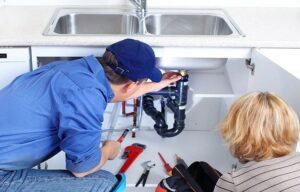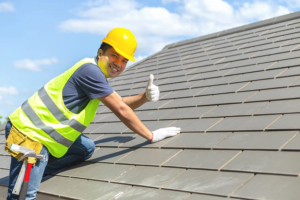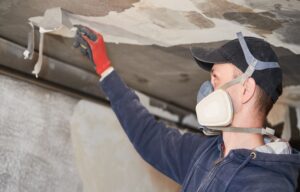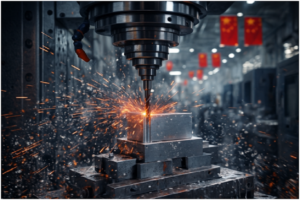Water Mitigation 101: A Comprehensive Guide To Managing Water Damage
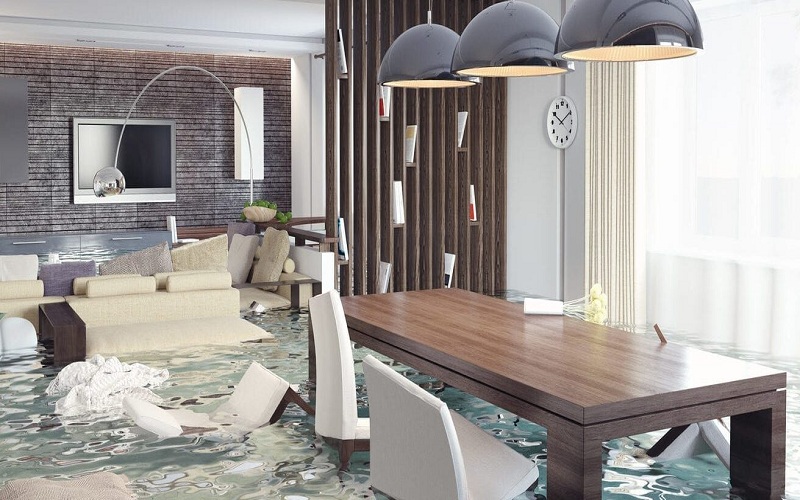
Key Takeaways:
- Water damage can be caused by plumbing issues, extreme weather, and poor home maintenance.
- Water damage can lead to mold growth, structural damage, and electrical hazards.
- To prevent water damage, regular maintenance, proper drainage, and the installation of sump pumps are important.
- In the event of water damage, addressing the source, drying the area, and seeking professional restoration services are crucial.
The Causes of Water Damage
Water damage can occur due to various reasons and understanding the common sources can help homeowners in Cape Cod take preventive measures to minimize the risk. One common cause of water damage is plumbing issues, such as burst pipes, leaking faucets, or faulty plumbing fixtures. These issues can result in significant water intrusion, leading to damage to the property.
Extreme weather conditions also play a significant role in causing water damage. Cape Cod is prone to heavy rainstorms, hurricanes, and flooding, which can result in water entering homes and causing extensive damage. Additionally, poor home maintenance, such as a lack of proper roof insulation or damaged gutters, can contribute to water damage during these weather events.
The Dangers of Water Damage
Water damage can have severe consequences for both the structure of the home and the health of its occupants. One of the primary dangers of water damage is the growth of mold. Moisture and dampness provide an ideal environment for mold to thrive, and this can lead to various health issues, especially for individuals with respiratory conditions.
Structural damage is another concern when it comes to water intrusion. Excessive moisture can weaken the foundation, walls, and wooden structures of a home, leading to costly repairs. In some cases, prolonged water damage can even compromise the integrity of the building, making it unsafe to inhabit.
There is also a risk of electrical hazards when water comes into contact with electrical systems or appliances. Water conducts electricity, and if there is any damage to the wiring or exposure to live electrical currents, it can result in electrocution or fires.
Preventing Water Damage in Cape Cod
Mitigating water damage starts with regular maintenance and inspections. It is crucial to identify and address any plumbing issues promptly. Regularly checking for leaks, maintaining proper drainage, and ensuring the functionality of sump pumps and backflow prevention devices can significantly reduce the risk of water damage.
Proper landscaping and water drainage systems are also essential in preventing water damage. Ensuring that the ground slopes away from the foundation of the house and installing gutters with downspouts can divert rainwater away from the property, reducing the risk of water intrusion into the basement or lower levels.
Installing a sump pump system can provide an additional layer of protection against water damage. Sump pumps are designed to pump out excess water from basements or crawl spaces, preventing flooding and water accumulation. Regular maintenance and testing of sump pumps are necessary to ensure their proper functioning.
Best Practices for Water Mitigation and Restoration
In the unfortunate event of water damage, quick and effective water mitigation in Cape Cod is crucial to mitigating further damage. Acting swiftly to minimize water intrusion can help prevent mold growth and structural damage. If water damage occurs, it is imperative to address the source of the water, such as fixing plumbing leaks or stopping floodwater from entering the property.
Proper drying and dehumidifying techniques are essential in preventing further moisture-related issues. Using professional-grade equipment, such as industrial fans and dehumidifiers, can help expedite the drying process and remove excess moisture from the air and affected surfaces. Thoroughly drying the area is crucial in preventing mold growth and restoring the property to its pre-damaged condition.
While minor water damage can sometimes be addressed by homeowners, it is often best to seek the assistance of professional water restoration services. These experts have the necessary expertise, equipment, and knowledge to handle water damage effectively. They can conduct a thorough assessment of the extent of the damage, develop a comprehensive restoration plan, and implement the necessary techniques to restore the property.
Professional water restoration services can also provide guidance on insurance claims and help navigate the often complex process of filing for water damage-related insurance claims. Their expertise ensures that all necessary documentation and evidence are gathered and presented properly, maximizing the chances of a successful claim.
In conclusion, water damage can pose significant risks to both the structural integrity of a home and the health of its occupants. Understanding the common causes and taking preventive measures can help minimize the risk of water damage in Cape Cod. In the event of water damage, acting swiftly and employing effective mitigation and restoration techniques can help restore the property and prevent further damage. Seek the assistance of professional water restoration services when necessary to ensure a thorough and successful restoration process.
FAQ
Question: What are some common causes of water damage in Cape Cod? – Some common causes of water damage in Cape Cod include plumbing issues, extreme weather conditions, and poor home maintenance.
Question: What are the dangers of water damage? – Water damage can lead to mold growth, structural damage, and electrical hazards. Mold growth can cause health issues, structural damage can weaken the foundation and walls of a home, and electrical hazards can result in electrocution or fires.
Question: How can water damage be prevented in Cape Cod? – Water damage can be prevented by regularly maintaining and inspecting plumbing systems, ensuring proper drainage and landscaping, and installing sump pumps for additional protection against flooding.
Question: What should be done in the event of water damage? – In the event of water damage, it is important to address the source of the water, dry the affected area, and seek professional restoration services to ensure proper mitigation and restoration.
Question: What are the best practices for water mitigation and restoration? – Best practices for water mitigation and restoration include quickly addressing the source of water, properly drying and dehumidifying the affected area, and seeking professional restoration services for thorough assessment and restoration.
Question: When should professional water restoration services be sought? – Professional water restoration services should be sought when water damage is extensive or the homeowner is unsure of how to effectively mitigate and restore the property. Professionals have the necessary expertise, equipment, and knowledge to handle water damage effectively.
Question: Can professional water restoration services assist with insurance claims? – Yes, professional water restoration services can provide guidance on insurance claims and help navigate the process of filing for water damage-related insurance claims. They can gather and present necessary documentation and evidence to maximize the chances of a successful claim.
Question: What is the conclusion about water damage and its mitigation in Cape Cod? – Water damage poses significant risks to both the structural integrity of a home and the health of its occupants. Taking preventive measures and acting swiftly in the event of water damage are essential. Seeking professional assistance ensures a thorough and successful restoration process.


